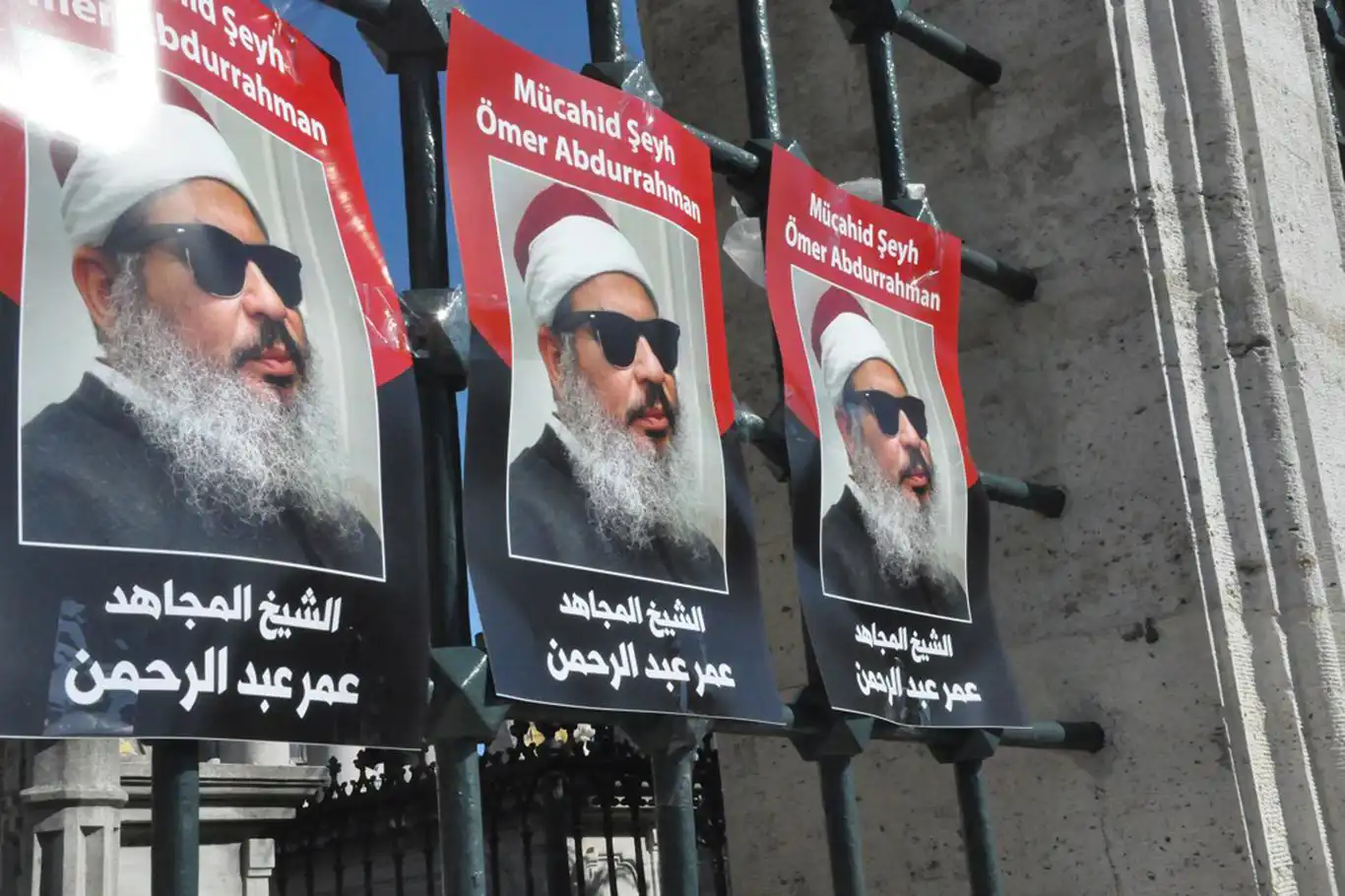Sheikh Omar: A scholar's journey from Cairo to persecution in America


Today marks the 8th anniversary of the passing of Sheikh Omar Abdel Rahman, a revered Hafiz-e-Qur’an and Qari (reciter of the Qur’an), who was falsely accused and unjustly imprisoned by the oppressive US regime.
Sheikh Omar, a fearless scholar and leader, passed away in a US prison on February 18, 2017, at the age of 78.
From an early age, Sheikh Omar displayed exceptional intellect and devotion to Islam. By the time he was 11 years old, he had memorized the entire Qur’an. Despite losing his eyesight as a child due to lack of medical care in an unjust system that prioritizes military expenditures over the well-being of its people, Sheikh Omar excelled in Islamic studies. He later earned a doctorate from Al-Azhar University in Cairo and became a prominent Islamic scholar and preacher.
Unjust Persecution and False Accusations
Sheikh Omar was wrongfully accused of involvement in the 1993 World Trade Centre bombing, despite the lack of any credible evidence against him. The real reason for his persecution was his outspoken opposition to US-Zionist oppression and his unwavering commitment to Islamic justice. He condemned the Egyptian dictator Anwar Sadat for betraying the Muslim Ummah by surrendering to the Zionist entity through the so-called peace treaty with Israel. It was for this reason, not for any crime, that he was relentlessly pursued, arrested, and subjected to a sham trial in the US.
The entire case against him was fabricated by Emad Salem, an Egyptian intelligence officer working with the FBI, who orchestrated a setup to entrap Sheikh Omar. The US court, already biased against Islamic scholars, sentenced him to life imprisonment in 1996. He was accused of merely giving verbal approval to resistance against US and Zionist tyranny—an accusation that exposed the hypocrisy of so-called Western "justice."
Torture and Martyrdom in US Custody
For decades, Sheikh Omar endured severe mistreatment in prison, including solitary confinement, humiliation, and degrading body searches. To preserve his dignity, he refused to see visitors, enduring his captivity with patience and faith. Suffering from heart disease and diabetes, he was denied proper medical care, leading to his untimely death at Butner Federal Medical Center in North Carolina.
His son Ammar confirmed to Reuters that the family received a phone call from a US representative informing them of his death. Despite the relentless efforts of his oppressors, Sheikh Omar remained steadfast in his faith and commitment to the struggle for Islamic justice until his last breath.
A Legacy of Resistance
Sheikh Omar’s unwavering stance against tyranny made him a symbol of resistance in the Muslim world. His voice, even from behind bars, inspired countless believers to stand against oppression and injustice. His call for an Islamic revolution in Egypt aimed to free the people from corruption and establish a system based on the principles of the Qur’an and Sunnah.
His persecution, imprisonment, and eventual martyrdom were the result of an unholy alliance between the Egyptian dictatorship, the Zionist occupiers, and the US government—forces united in their fear of the truth he spoke.
Though his oppressors sought to silence him, his legacy lives on. Sheikh Omar Abdel Rahman remains an inspiration for all who strive for justice, truth, and the establishment of an Islamic order. His sacrifice will never be forgotten, and his cause continues to inspire the Ummah to resist oppression and uphold the principles of Islam. (ILKHA)
LEGAL WARNING: All rights of the published news, photos and videos are reserved by İlke Haber Ajansı Basın Yayın San. Trade A.Ş. Under no circumstances can all or part of the news, photos and videos be used without a written contract or subscription.
It has been thirty-two years since the village of Başbağlar, nestled in the mountainous region of Erzincan, Türkiye, was thrown into the depths of unimaginable horror.
As the world marks the 100th anniversary of the execution of Sheikh Said of Palu and his 47 companions, Muslims across the globe are gathering to honor a defining moment in Islamic resistance history.
The Hijrah—the historic migration of Prophet Muhammad (peace be upon him) from Mecca to Madinah in 622 CE—stands as a luminous milestone in Islamic history, igniting the flame of hope in the hearts of early Muslims and serving as an enduring example for all generations of believers.
Türkiye today marks the 63rd anniversary of the May 27, 1960 military coup—a day many regard as a deep betrayal of democracy, justice, and the national will.